Hi guys, Cliff Olson, doctor of audiology and founder of Applied Hearing Solutions in Phoenix, Arizona, and in this video I'm gonna show you why you're wasting 1000s of dollars on hearing aids, coming up. One thing we can all agree upon is that treating your hearing loss isn't cheap.
Hi guys, Cliff Olson, doctor of audiology and founder of Applied Hearing Solutions in Phoenix, Arizona, and in this video I'm gonna show you why you're wasting 1000s of dollars on hearing aids, coming up. One thing we can all agree upon is that treating your hearing loss isn't cheap.
Okay, well, technically speaking, it can be cheap but as with anything, you usually have to make a choice between either low cost or high quality, you can never have both at the same time. Anytime I think about this comparison between quality and cheap, I always think about competing barber shops. You've probably seen these photos where a major chain opens up a new location advertising for something like $7.99 haircuts, and the longstanding barbershop across the street has a sign that says we fix $7.99 cent haircuts. But this haircut analogy inside of the world of hearing aids is a little bit backwards because you see in the hearing aid industry, you typically have clinics that will sell you hearing aids for 1000s of dollars and only give you $7.99 cents worth of value, and try to convince you that you're actually getting 1000s of dollars worth of value. So let me explain what I mean. About a month ago, I onboarded a new audiologist inside of my clinic and she actually came from an ENT clinic previously. After talking about the pricing of hearing aids and treatment in their clinic compared to our clinic, we determined that our pricing is relatively similar. The problem was the amount of services that were actually being given to these patients in the ENT clinic were significantly less than the amount of services that were being given in my clinic, and the difference was huge. Now I'm not trying to say that my clinic is just better than every other clinic out there or that there aren't ENT clinics out there that provide a high quality of care, what I am saying is, is that you don't always get what you pay for.
So if you want high quality treatment and you're willing to pay top dollar for that treatment, you actually need to make sure that you're getting quality. So how do you actually know if you're going to receive the quality of care that you deserve based on the price that you pay? Well, that's what I'm gonna show you in this video. But before I do, if you could do me a huge favor and click the like button, it really helps out my channel because it gets these videos in front of a broader audience. And while you're at it, if you have not yet hit that subscribe button with notification bell, go ahead and do that as well, because that ensures that you never miss one of my newly released videos and I release multiple new videos every single week. That being said, I really appreciate it. Now let's take a look at what actually makes a quality treatment. The way I see it, there are four different components to high quality hearing treatment. Now number four might surprise you, but let's go ahead and start with component number one which is the hearing aid technology itself. Now there are a lot of different hearing aids out on the market, but there are a few misconceptions that come along with hearing aid technology. Number one, a lot of people feel like the technology in and of itself is the reason why they will or will not have success with hearing treatment. The second misconception is that 100% of the cost of hearing treatment is attributed to the quality of the hearing aid technology. And while that couldn't be further from the truth, hearing aid technology does contribute to a portion of the cost. This means that you have to ensure that you know which level of technology you're going to be receiving from your hearing care provider so you do not get taken advantage of.
Generally speaking, you have between three and five different tiers of technology, starting with the top tier premium level and progressing down all the way to the bottom tier essential level. Now, if you are going to be paying 1000s of dollars for hearing aids, you had better make sure that you were getting one of the higher tiers of technology. Let me explain what I mean. So if you're gonna be getting some Phonak hearing aids, you're gonna have the option of getting the premium tier 90 or working your way down to the 70, 50 or bottom tier 30 level. If you're gonna be getting Oticon hearing aids, you're gonna start off at level one and work your way down to level three, if you're going to be getting resound hearing aids, the top tier is level nine, the middle tier is level seven and the bottom tier technology is level five. I do have several other videos on my channel where I talk about the differences between technology levels and I will link those videos down in the description. The second component of quality is the provision of person-centered care. Person-centered care is when your hearing care professional takes into account your wants, needs and values before making a treatment recommendation and includes you as a joint decision maker so you are an active participant in your own care.
What I mean by this is that if you want to receive treatment that does what you actually want it to do, your hearing care professional has to get to know you really well and understand what's important to you. This also means that they will likely include your family and other communication partners to help develop a strong support system for long-term success with hearing treatment. Gone are the days where you should just accept being fit with any hearing aid regardless of what's important to you. Of course for person-centered care to be possible, you need a lot of the third component of quality which is the time that is spent with your hearing care professional. If you have a hearing test and consultation and it all takes place in less than one hour, I would highly question whether or not your hearing care provider really understands your wants, needs and hearing loss enough to make you a solid treatment recommendation. High quality clinics will typically spend between one and two hours with you to make sure that they really understand what your wants and needs are, make sure that they do comprehensive hearing testing and explain all of your results to you before making sure that you understand what your different hearing aid options are. If you're hearing aid fitting takes less than 30 minutes to complete and you receive little to no follow up care after that fitting, then you are not receiving high quality care, you are receiving fast food drive through care. High quality clinics will typically spend at least an hour with you doing a fitting, and actually preschedule follow up visits with you over the course of the next several weeks and spend a couple more hours with you to make sure that they teach you everything that you need to know about your hearing aids, and so they can get feedback from you to optimize your programming. Over the course of the next several years, you should be coming in regularly to make sure that you're having preventative maintenance done on your hearing aids, have any repairs done and have follow up testing and reprogramming if you're hearing loss changes.
If the only requirement is for you to come in when you think you're having problems, then you are not going to a high quality clinic. And the fourth and most important component in my opinion to receiving quality care is whether or not your hearing care professional follows best practices. If your hearing care professional does not follow comprehensive best practices, then you are not getting the quality that you are paying for when it comes to hearing treatment. Now, I do have a video that explains what best practices are in detail, and I also have a best practice checklist that I will link down in the description of this video. But basically best practices are a long list of procedures that must be completed to make sure that you receive the maximum amount of benefit from your hearing aids. Best practices requires reviewing different feature options, like the style of the hearing aid, whether it has Bluetooth connectivity, if it has a telecoil, what custom ear mold options it has, and of course, what different technology levels there are. It requires discussing different assistive listening devices to help you out more in background noise situations as well as hearing the TV and telephone better. Best practices require that your hearing care professional performs test box measures on your hearing aids to make sure that diagnostically there are meeting manufacturer specifications so you're not being fit with a hearing aid that is actually mechanically malfunctioning. Of course it includes performing real ear measurement during your hearing aid fitting to make sure that your hearing aids are programmed correctly to your hearing loss prescription so you can actually gain access to the sounds that you're missing due to your hearing loss. It also means that your hearing care professional needs to provide you with assistance and detailed instructions with how to use any features of your hearing aids as well as any accessories that go with your hearing aids and to make sure that you know how to take care of your hearing aids properly. And it also requires that your hearing care professional perform validation outcome measures to make sure that you are actually receiving subjective benefit from your hearing aids in a variety of different situations, more so than just asking you, how do they sound? And these are only seven of many best practices that must be followed in order to make sure that you're actually receiving quality treatment with your hearing aids.
Now, there is some bad news, I know you don't wanna hear bad news, but less than 30% of hearing care professionals follow these critical best practices to make sure that you get the most out of your hearing aids. Now, the best way to find a hearing care professional who follows these best practices is to look for a HearingUp provider near you. HearingUp providers are a vetted network of hearing care professionals who are all committed to following best practices and providing you with the amount of time necessary to make sure that you get the maximum amount of benefit out of your hearing aids. To find a hearing up network member in your area, just go to hearingup.com and click on the "Find a Provider" tab on the menu at the top of the page. Once you're there, you can search for a provider with your address or zip code, or you can click and drag the map to find the closest HearingUp provider near you. Once you find the HearingUp provider that you want to go to, give them a call, request an appointment, or visit their clinic website for more information. When it's all said and done, if you're not receiving top tier technology, person-centered care, a significant time commitment and best practice care from your hearing care professional, then you were wasting 1000s of dollars on your hearing treatment, and you don't even know it. If I had to leave you with an analogy of what it would be like to spend 1000s of dollars on hearing aids and not get any of these things, I would basically say that it's like going to a steakhouse, like a really nice steakhouse, ordering the best steak on the menu and having them bring you like a slice of baloney, and you believing that that's actually the best steak on the menu. So do yourself a favor, before you decide to spend 1000s of dollars on hearing treatment, make sure that you take these four considerations of quality into account before you do, I promise you won't regret it. That's it for this video. If you have any questions, leave them in the comment section below. If you like the video, please share it, and if you wanna see other videos just like this, well, go ahead and hit that subscribe button. Also feel free to check out my website, drcliffaud.com.
Hi guys, Cliff Olson, doctor of audiology and founder of Applied Hearing Solutions in Phoenix, Arizona, and in this video I'm gonna show you why you're wasting 1000s of dollars on hearing aids, coming up. One thing we can all agree upon is that treating your hearing loss isn't cheap.
Okay, well, technically speaking, it can be cheap but as with anything, you usually have to make a choice between either low cost or high quality, you can never have both at the same time. Anytime I think about this comparison between quality and cheap, I always think about competing barber shops. You've probably seen these photos where a major chain opens up a new location advertising for something like $7.99 haircuts, and the longstanding barbershop across the street has a sign that says we fix $7.99 cent haircuts. But this haircut analogy inside of the world of hearing aids is a little bit backwards because you see in the hearing aid industry, you typically have clinics that will sell you hearing aids for 1000s of dollars and only give you $7.99 cents worth of value, and try to convince you that you're actually getting 1000s of dollars worth of value. So let me explain what I mean. About a month ago, I onboarded a new audiologist inside of my clinic and she actually came from an ENT clinic previously. After talking about the pricing of hearing aids and treatment in their clinic compared to our clinic, we determined that our pricing is relatively similar. The problem was the amount of services that were actually being given to these patients in the ENT clinic were significantly less than the amount of services that were being given in my clinic, and the difference was huge. Now I'm not trying to say that my clinic is just better than every other clinic out there or that there aren't ENT clinics out there that provide a high quality of care, what I am saying is, is that you don't always get what you pay for.
So if you want high quality treatment and you're willing to pay top dollar for that treatment, you actually need to make sure that you're getting quality. So how do you actually know if you're going to receive the quality of care that you deserve based on the price that you pay? Well, that's what I'm gonna show you in this video. But before I do, if you could do me a huge favor and click the like button, it really helps out my channel because it gets these videos in front of a broader audience. And while you're at it, if you have not yet hit that subscribe button with notification bell, go ahead and do that as well, because that ensures that you never miss one of my newly released videos and I release multiple new videos every single week. That being said, I really appreciate it. Now let's take a look at what actually makes a quality treatment. The way I see it, there are four different components to high quality hearing treatment. Now number four might surprise you, but let's go ahead and start with component number one which is the hearing aid technology itself. Now there are a lot of different hearing aids out on the market, but there are a few misconceptions that come along with hearing aid technology. Number one, a lot of people feel like the technology in and of itself is the reason why they will or will not have success with hearing treatment. The second misconception is that 100% of the cost of hearing treatment is attributed to the quality of the hearing aid technology. And while that couldn't be further from the truth, hearing aid technology does contribute to a portion of the cost. This means that you have to ensure that you know which level of technology you're going to be receiving from your hearing care provider so you do not get taken advantage of.
Generally speaking, you have between three and five different tiers of technology, starting with the top tier premium level and progressing down all the way to the bottom tier essential level. Now, if you are going to be paying 1000s of dollars for hearing aids, you had better make sure that you were getting one of the higher tiers of technology. Let me explain what I mean. So if you're gonna be getting some Phonak hearing aids, you're gonna have the option of getting the premium tier 90 or working your way down to the 70, 50 or bottom tier 30 level. If you're gonna be getting Oticon hearing aids, you're gonna start off at level one and work your way down to level three, if you're going to be getting resound hearing aids, the top tier is level nine, the middle tier is level seven and the bottom tier technology is level five. I do have several other videos on my channel where I talk about the differences between technology levels and I will link those videos down in the description. The second component of quality is the provision of person-centered care. Person-centered care is when your hearing care professional takes into account your wants, needs and values before making a treatment recommendation and includes you as a joint decision maker so you are an active participant in your own care.
What I mean by this is that if you want to receive treatment that does what you actually want it to do, your hearing care professional has to get to know you really well and understand what's important to you. This also means that they will likely include your family and other communication partners to help develop a strong support system for long-term success with hearing treatment. Gone are the days where you should just accept being fit with any hearing aid regardless of what's important to you. Of course for person-centered care to be possible, you need a lot of the third component of quality which is the time that is spent with your hearing care professional. If you have a hearing test and consultation and it all takes place in less than one hour, I would highly question whether or not your hearing care provider really understands your wants, needs and hearing loss enough to make you a solid treatment recommendation. High quality clinics will typically spend between one and two hours with you to make sure that they really understand what your wants and needs are, make sure that they do comprehensive hearing testing and explain all of your results to you before making sure that you understand what your different hearing aid options are. If you're hearing aid fitting takes less than 30 minutes to complete and you receive little to no follow up care after that fitting, then you are not receiving high quality care, you are receiving fast food drive through care. High quality clinics will typically spend at least an hour with you doing a fitting, and actually preschedule follow up visits with you over the course of the next several weeks and spend a couple more hours with you to make sure that they teach you everything that you need to know about your hearing aids, and so they can get feedback from you to optimize your programming. Over the course of the next several years, you should be coming in regularly to make sure that you're having preventative maintenance done on your hearing aids, have any repairs done and have follow up testing and reprogramming if you're hearing loss changes.
If the only requirement is for you to come in when you think you're having problems, then you are not going to a high quality clinic. And the fourth and most important component in my opinion to receiving quality care is whether or not your hearing care professional follows best practices. If your hearing care professional does not follow comprehensive best practices, then you are not getting the quality that you are paying for when it comes to hearing treatment. Now, I do have a video that explains what best practices are in detail, and I also have a best practice checklist that I will link down in the description of this video. But basically best practices are a long list of procedures that must be completed to make sure that you receive the maximum amount of benefit from your hearing aids. Best practices requires reviewing different feature options, like the style of the hearing aid, whether it has Bluetooth connectivity, if it has a telecoil, what custom ear mold options it has, and of course, what different technology levels there are. It requires discussing different assistive listening devices to help you out more in background noise situations as well as hearing the TV and telephone better. Best practices require that your hearing care professional performs test box measures on your hearing aids to make sure that diagnostically there are meeting manufacturer specifications so you're not being fit with a hearing aid that is actually mechanically malfunctioning. Of course it includes performing real ear measurement during your hearing aid fitting to make sure that your hearing aids are programmed correctly to your hearing loss prescription so you can actually gain access to the sounds that you're missing due to your hearing loss. It also means that your hearing care professional needs to provide you with assistance and detailed instructions with how to use any features of your hearing aids as well as any accessories that go with your hearing aids and to make sure that you know how to take care of your hearing aids properly. And it also requires that your hearing care professional perform validation outcome measures to make sure that you are actually receiving subjective benefit from your hearing aids in a variety of different situations, more so than just asking you, how do they sound? And these are only seven of many best practices that must be followed in order to make sure that you're actually receiving quality treatment with your hearing aids.
Now, there is some bad news, I know you don't wanna hear bad news, but less than 30% of hearing care professionals follow these critical best practices to make sure that you get the most out of your hearing aids. Now, the best way to find a hearing care professional who follows these best practices is to look for a HearingUp provider near you. HearingUp providers are a vetted network of hearing care professionals who are all committed to following best practices and providing you with the amount of time necessary to make sure that you get the maximum amount of benefit out of your hearing aids. To find a hearing up network member in your area, just go to hearingup.com and click on the "Find a Provider" tab on the menu at the top of the page. Once you're there, you can search for a provider with your address or zip code, or you can click and drag the map to find the closest HearingUp provider near you. Once you find the HearingUp provider that you want to go to, give them a call, request an appointment, or visit their clinic website for more information. When it's all said and done, if you're not receiving top tier technology, person-centered care, a significant time commitment and best practice care from your hearing care professional, then you were wasting 1000s of dollars on your hearing treatment, and you don't even know it. If I had to leave you with an analogy of what it would be like to spend 1000s of dollars on hearing aids and not get any of these things, I would basically say that it's like going to a steakhouse, like a really nice steakhouse, ordering the best steak on the menu and having them bring you like a slice of baloney, and you believing that that's actually the best steak on the menu. So do yourself a favor, before you decide to spend 1000s of dollars on hearing treatment, make sure that you take these four considerations of quality into account before you do, I promise you won't regret it. That's it for this video. If you have any questions, leave them in the comment section below. If you like the video, please share it, and if you wanna see other videos just like this, well, go ahead and hit that subscribe button. Also feel free to check out my website, drcliffaud.com.
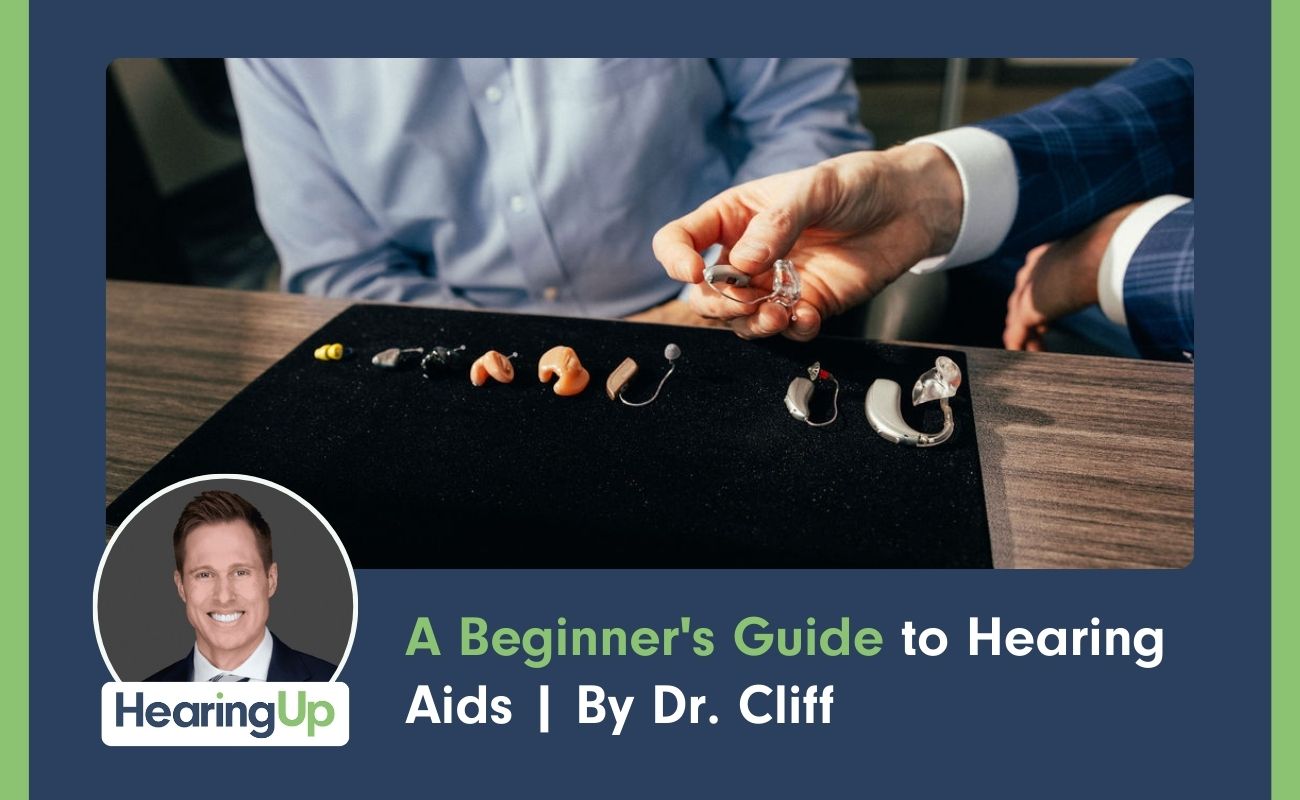
Hearing aid success requires 90-min evaluations, Real Ear Measurement programming, appropriate tech selection, 30-day adaptation and ongoing professional follow-up.
Read More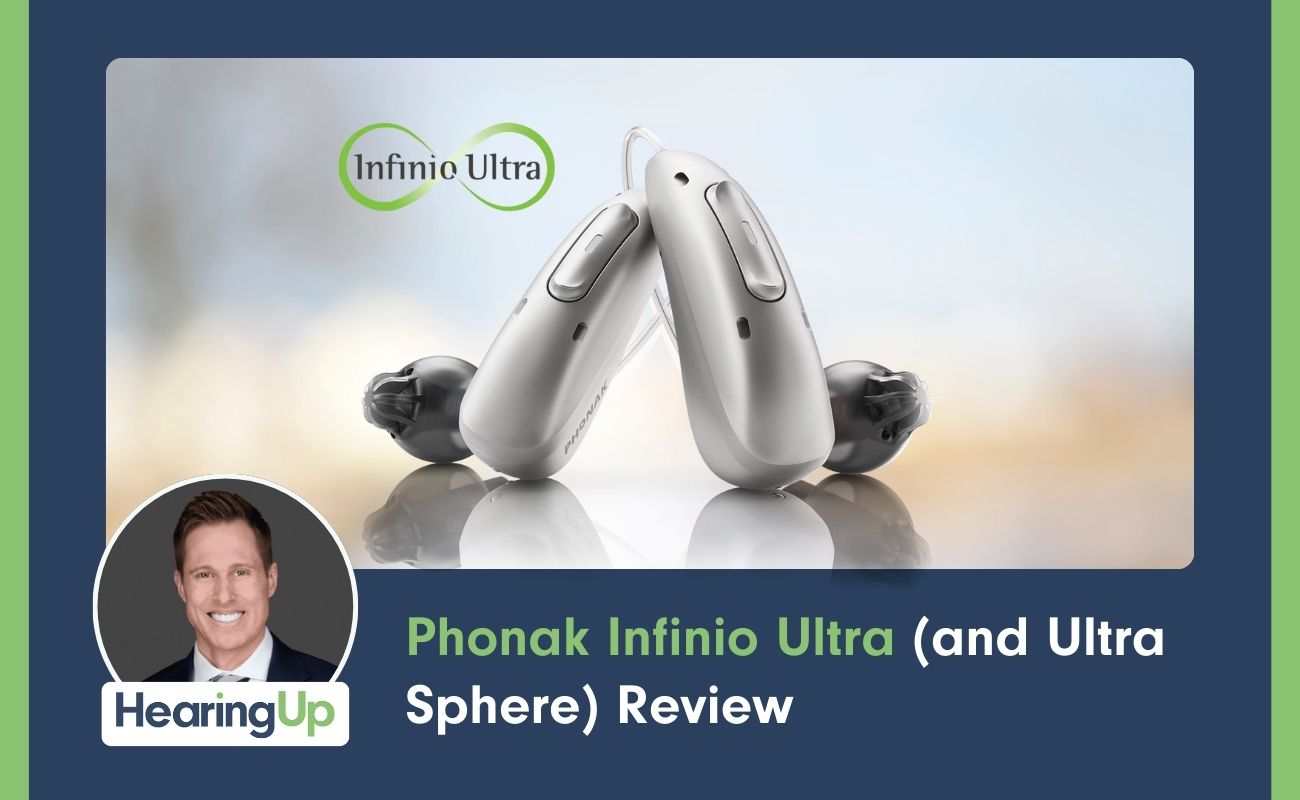
Phonak Infinio Ultra firmware adds AutoSense OS 7.0 (24% better), 30% improved battery (10hrs with AI), simplified Bluetooth pairing, and faster feedback tests.
Read More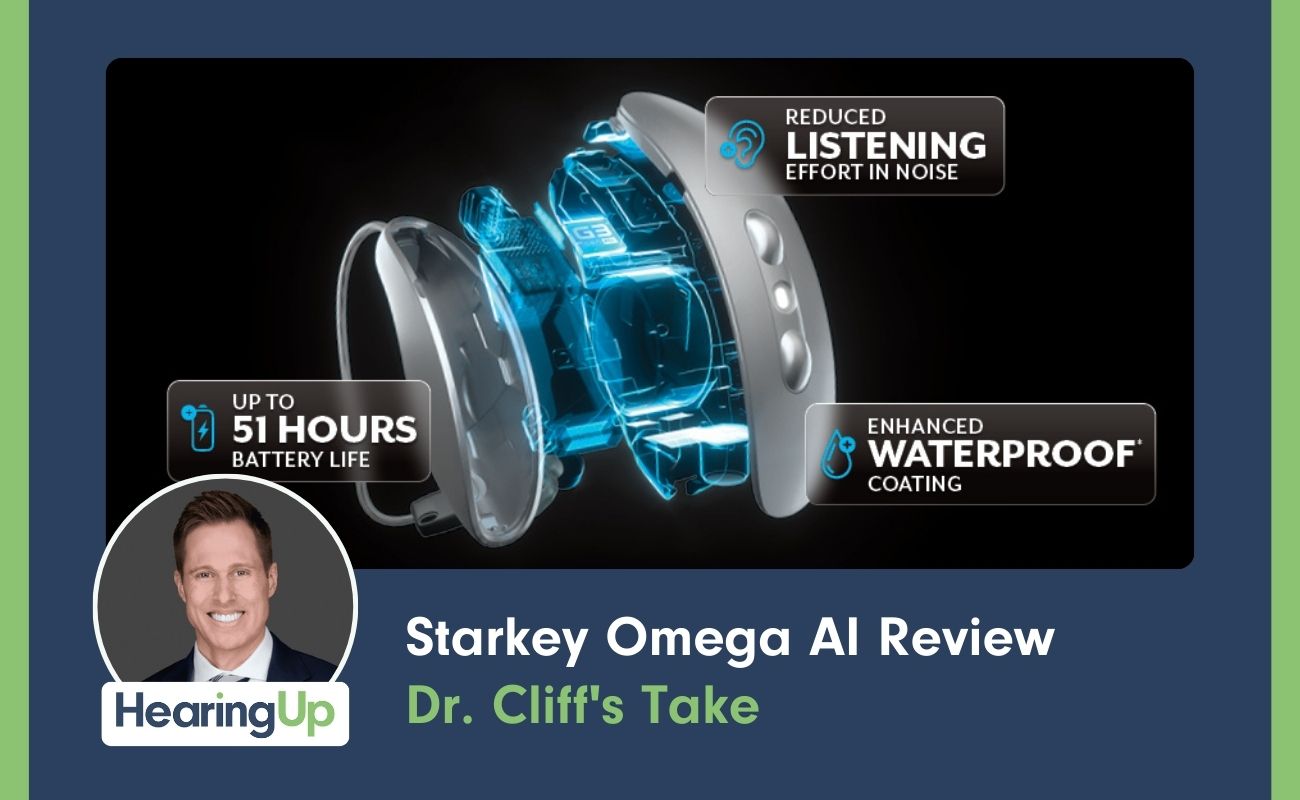
Starkey Omega AI improves on Edge AI with DNN 360 (19.6% better speech clarity), spatial awareness, find-my-hearing-aid lights, and 20x stronger custom shells.
Read More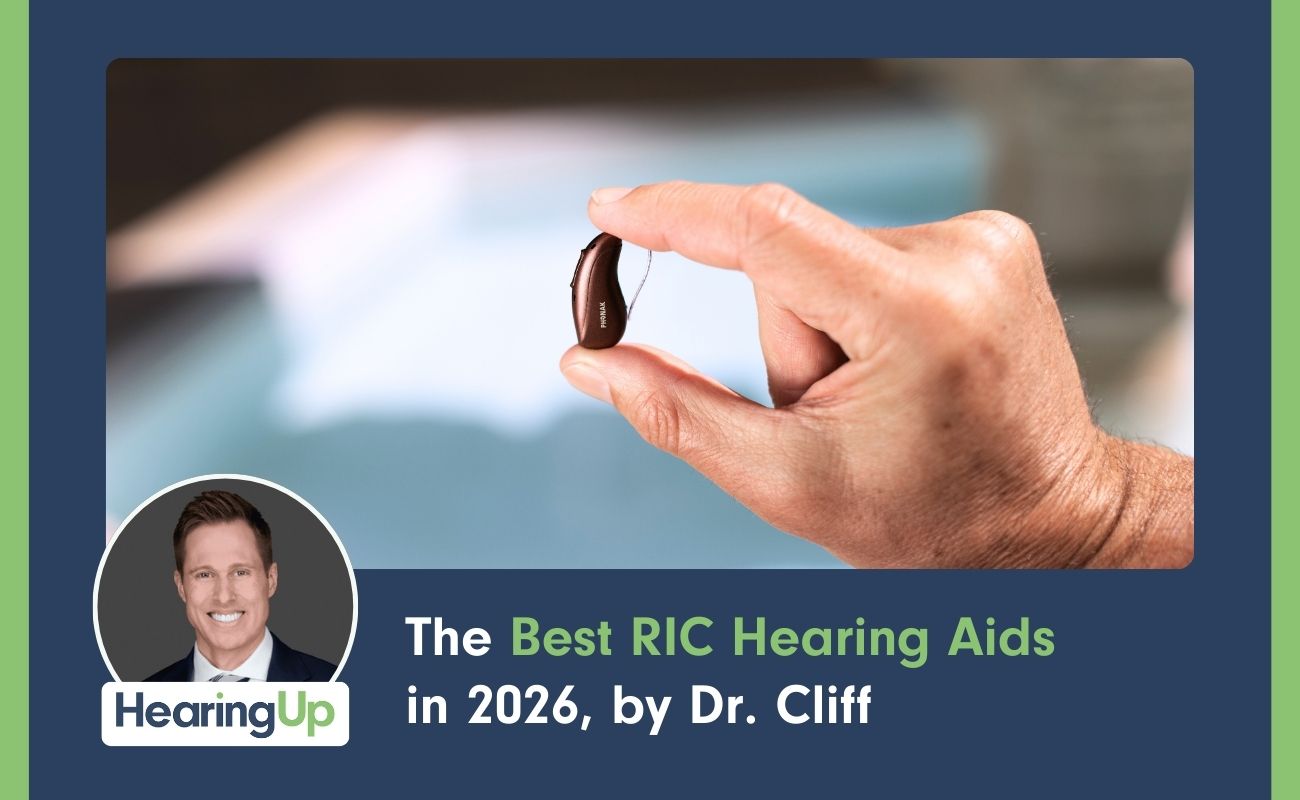
Top 2026 RIC hearing aids: Phonak Ultra Sphere Infinio (AI noise reduction), Starkey Omega AI, Oticon Intent, Signia IX, Widex SmartRIC.
Read More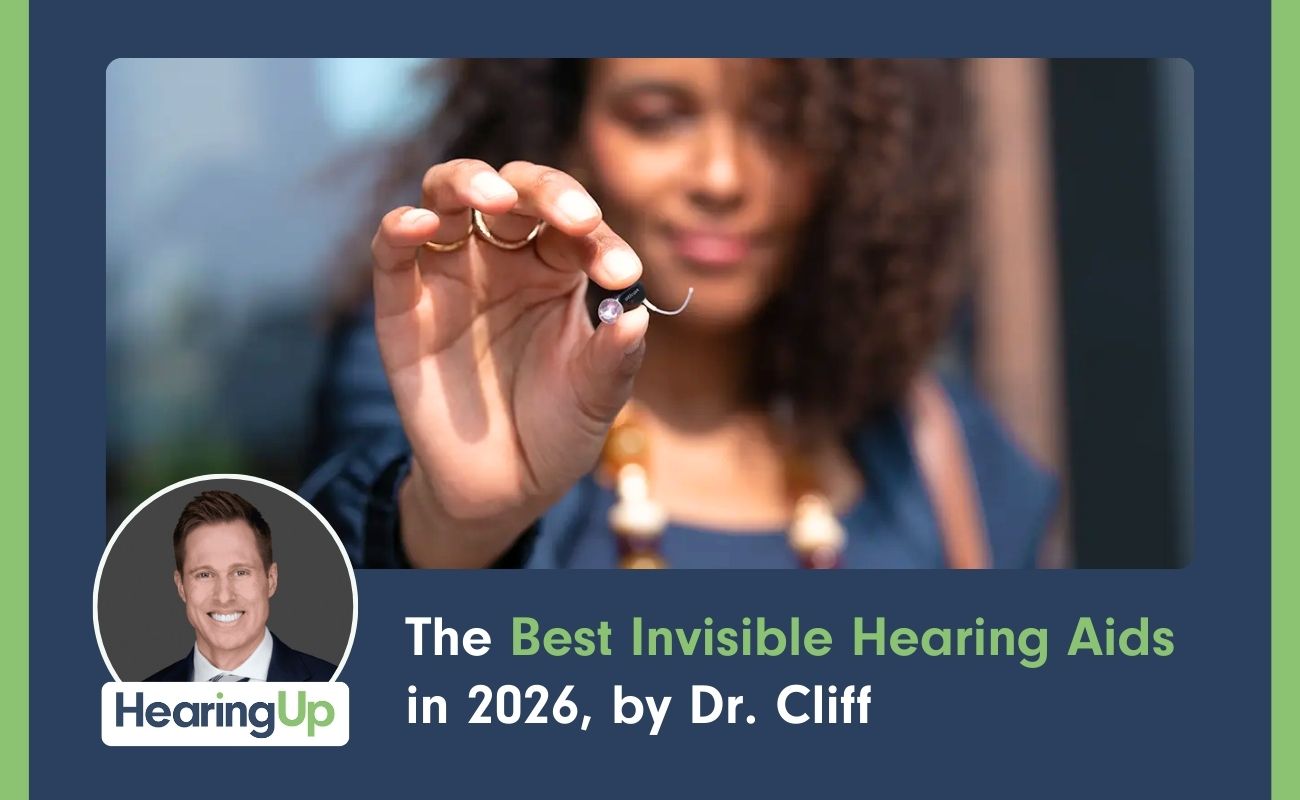
Best 2026 invisible aids: Oticon Zeal (AI/Auracast), Phonak Lyric (self-replace), Starkey IIC (minimal), Phonak Titanium (durable), Oticon Own (AI processing).
Read More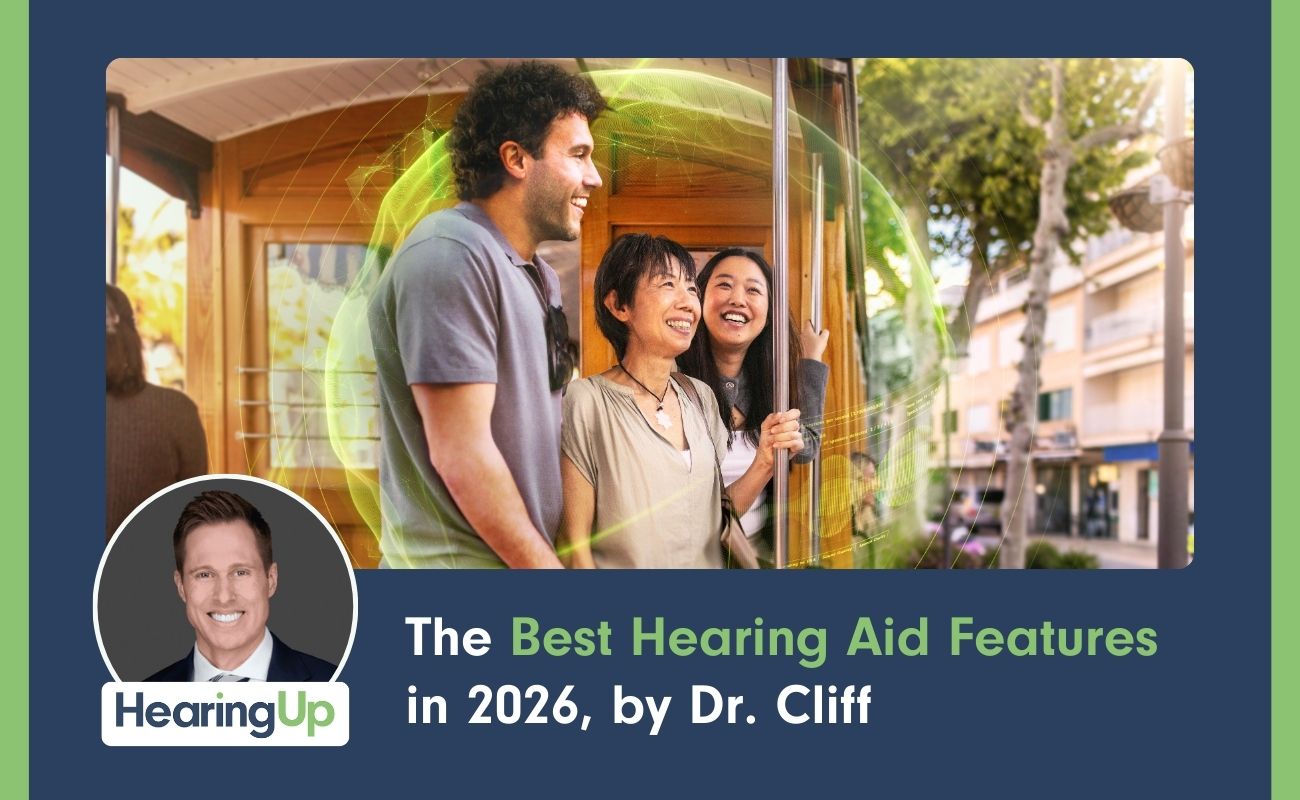
Auracast audio, remote care, DNN processing, custom ear molds, and durability tech lead 2026's most impactful hearing aid innovations for better sound and convenience.
Read More